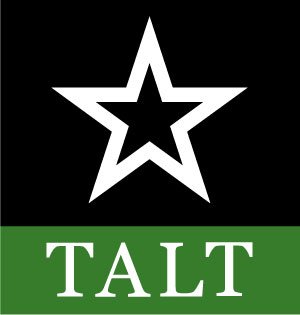Goodwin 300
A pilot project is underway in Bailey County in the Texas Panhandle that could result in future carbon credit revenue streams for agricultural landowners in Texas and beyond. The Texas Agricultural Land Trust (TALT) has partnered with AgriCapture to hold a conservation easement on 300 acres of pristine grassland habitat. The easement contains provisions that make the property eligible to receive carbon credits for storing and conserving soil carbon, as well as reducing emissions associated with crop production.
Based in Nashville, AgriCapture was created in 2021 by a group of agriculture specialists, data experts, and passionate environmentalists who believe in the role sustainable agriculture has in the fight against climate change. AgriCapture verifies Climate-Friendly agricultural practices on farms, ranches, and grasslands to track environmental benefits and create revenue for agricultural partners across the country. The Bailey County project is the first carbon credit project of its kind in Texas.
“AgriCapture was founded on the premise that soil is the most important part of farming and ranching,” said Lincoln Day, AgriCapture’s Grasslands Manager. “Beyond supporting a thriving food system, healthy soil is crucial for sequestering carbon and combatting climate change. AgriCapture is exploring new ways to use Climate-Friendly practices to boost soil health and increase revenues at the farm and ranch level.”
There are many ways a farmer and rancher can realize revenue from healthy soil. One way is a carbon credit, which represents a reduction or removal of one metric ton of carbon dioxide and is purchased by a company that wants to offset its carbon footprint. The pilot project in Bailey County will generate carbon credits as an avoided grasslands conversion project and follows the Grassland Protocol from Climate Action Reserve. The conservation easement held by TALT will forever protect the land from being converted to cropland and disturbing the underlying soil carbon.
“The easement ensures the land will never be converted to cropland, which can degrade the soil and release greenhouse gas emissions during typical row crop production. Our robust data collection process and quantification procedures allow us to monitor and report the greenhouse gases reduced by protecting the land from cropland development.”
The project creates an opportunity for TALT and AgriCapture to learn more about how carbon credits can be factored into conservation easements going forward. By providing an additional revenue stream for landowners, the financial burdens associated with putting a piece of property under a conservation easement are lessened.
“Our whole mission is to provide revenue for landowners so the land is conserved into the future,” said Day. “Factoring in the conservation value and added revenue of carbon credit projects provides one more reason for a landowner to enter into a conservation easement. We’re bringing private voluntary carbon market revenue to the table to enhance the deal for landowners. We hope this will encourage more farmers and ranchers to consider a voluntary conservation easement as they contemplate the future of their family lands.”
TALT has been on the leading edge of exploring ecosystem services markets, including carbon credits, for Texas landowners. TALT CEO Chad Ellis is pleased to see these new markets playing a role in encouraging landowners to consider a voluntary conservation easement to forever protect their land legacy.
“We are grateful for the expertise of AgriCapture’s team in helping us explore how these carbon markets can be part of the conversation around conservation easements,” said Ellis. “This pilot project will help us learn more about how we can make it happen on the ground to benefit Texas farmers and ranchers, and all of us who depend on healthy landscapes that contribute to cleaner air and water for us all.”


